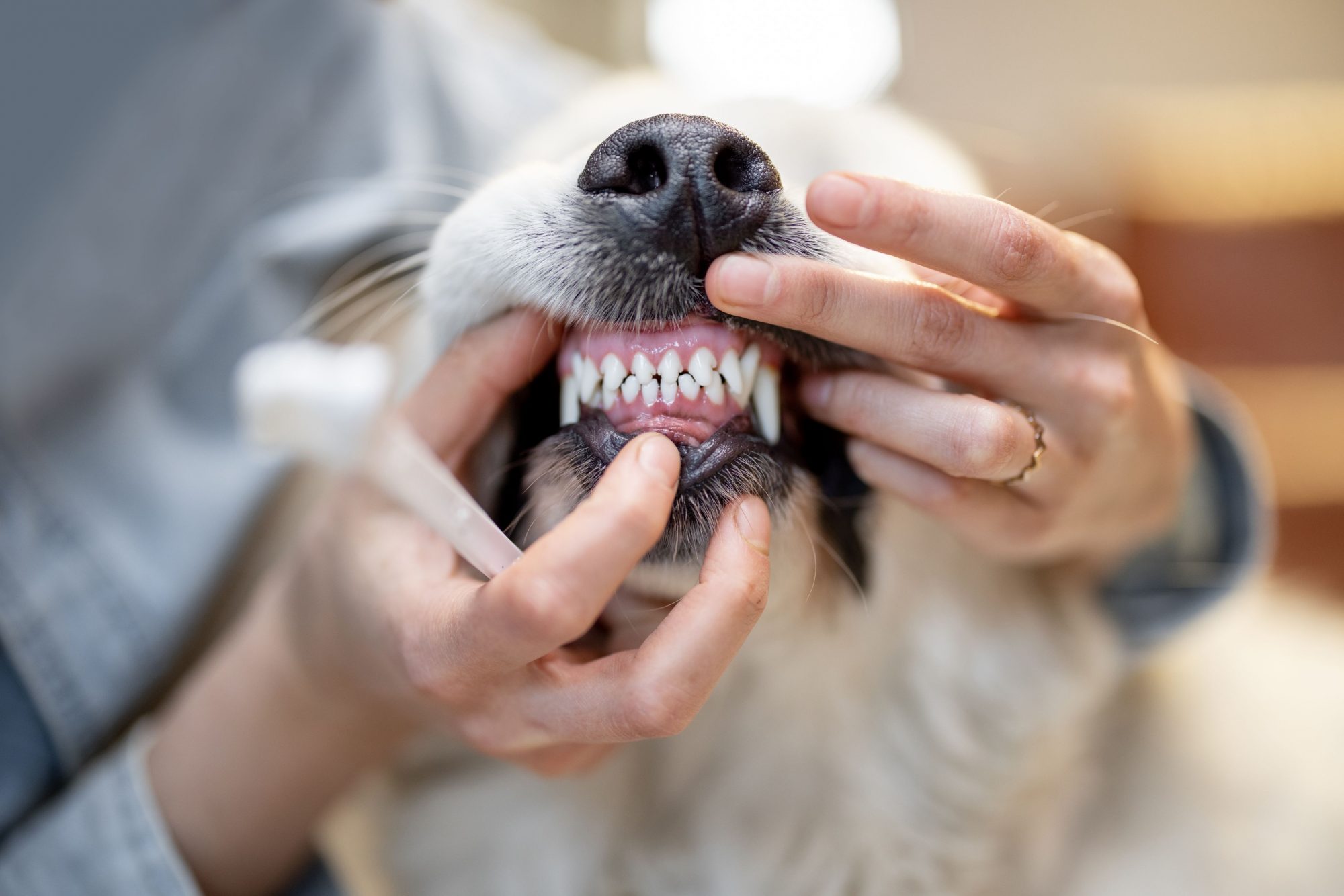Blog
Pet Dental Care: Worth More Than Fresh Breath

Understanding your pet’s overall health can be as simple as looking inside his or her mouth. While a long, healthy life depends on factors such as nutrition, disease prevention, and exercise, it can also hinge on the state of your pet’s teeth and gums.
With routine exams, professional cleanings, and at-home brushing, your pet can avoid serious health issues. Want to learn more about pet dental care? Look no further!
Why it Matters
Plaque and tartar build up over time and can eventually lead to periodontal disease. Shockingly, most pets over the age of 3 exhibits at least one stage of periodontal disease (gingivitis is stage one; tooth extraction is stage four). What’s worse, bacteria created by plaque can cause gums to bleed, allowing the bacteria to enter the bloodstream. This can result in systemic infections of the heart, liver, or kidneys.
Chain Reaction
Beyond bad breath and bleeding gums, poor dental hygiene can manifest in the following ways:
- Inappetance
- Difficulty chewing
- Dropping food
- Excessive drooling
- Loose, broken, discolored, or missing teeth
- A change in preference from dry to wet food
- Pawing at the face
These are red flags indicating your pet needs dental care right away, so please don’t hesitate to give us a call.
Periodontal infections can also result in:
- Bone loss around the teeth
- Nasal discharge
- Jaw fractures
- Oral cancers
- Tooth root abscesses
What to Do?
You can help your pet avoid the painful symptoms associated with the periodontal disease through home care, regular exams, and professional cleanings.
One facet of your pet’s routine wellness visit includes a look into his or her mouth. Depending on what we see, x-rays may be necessary to understand the possible damage below the gum line. If we conduct a professional cleaning or a dental procedure, your pet will be put under general anesthesia. Understandably, this may bring up concerns for your pet’s safety and wellbeing. Rest assured that we’re here every step of the way to support your pet and answer your questions.
Pet Dental Care at Home
It can be challenging to get into a routine, but if you make an effort to acclimate your cat or dog to brushing, each experience will be more effective – and rewarding.
First, your pet must associate teeth brushing with good feelings, such as grooming, extra cuddles, or additional outside time. Then:
- Allow your pet to sniff the products (always use a pet toothpaste, like poultry or bacon flavor).
- Gently insert the toothbrush into your pet’s mouth, focusing on the upper, outer molars (where most tarter is found).
- Work your way up to gently brushing every tooth in a circular motion.
- Aim for 2 minutes total, split equally between the upper and lower teeth.
You may also choose to provide your pet with a rinse, dental chew, or treat that supplements your teeth brushing. Check out this list of approved products, and let us know if you have any questions.
Looking Ahead
The veterinarians and staff at Ten West Bird and Animal Hospital are happy to help you with your pet dental care needs. With regular exams, cleanings, and tooth brushings at home, we can add years of healthy living to your pet. What could be better than that?
